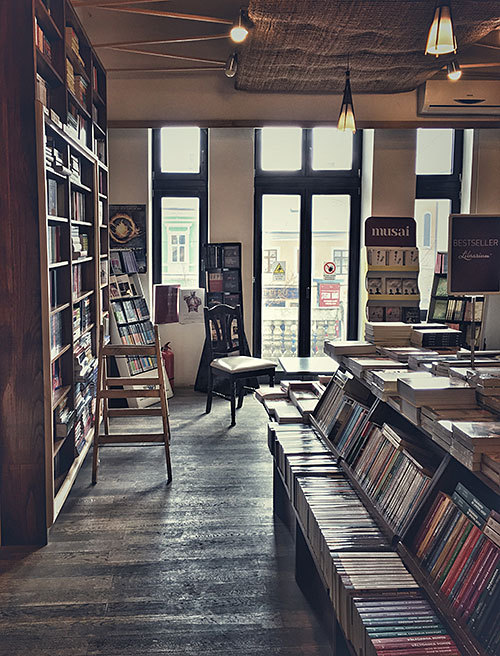A few years ago, it seemed like bookstores were on their way out; with the rise of ebooks and fast shipping speeds, many bookstores seemed to be struggling to hold on. We began to see a rise in community-driven bookstores—local legends who rely on foot traffic in their neighborhoods. In Portland, we see this with Broadway Books, Mother Foucault’s, Annie Bloom’s, and my place of work, Wallace Books. These stores have an avid customer base of people who go out of their way to bring their business to local shops. Bookselling is often very seasonal: most of the stock is sold around the holiday season, creating the majority of the budget for the whole year. Therefore, a lot of bookstores double as other kinds of businesses—such as cafes, rentable community spaces, or bars—in order to offset the seasonality of the store itself.
Along those lines, within the past few years, there has been a rise in independent publishers opening their own brick-and-mortar shops. By combining a bookstore and a publishing house, a company can bring in profits at different times and stay informed about what is selling on the market. Places like Milkweed Editions in Minneapolis, Curbside Splendor in Chicago, and Deep Vellum in Texas have found that having a bookstore in addition to a press can be beneficial to publishing as well. This is partly due to the aforementioned community-driven angle behind local bookstores: by opening a brick-and-mortar store, a publisher can see a rise in community support not only for their shop but also for their publishing house (although this is perhaps contingent on the relationships that the booksellers build with the community).
The bulk of articles that I’ve read on the matter were published in 2016, which was when the trend of crossovers between publishers and bookstores seemed more visible. The catalyst for opening a storefront has been different in each case: maybe a convenient space opened up, or maybe the company had a clear vision of starting a bookstore all along. For publishers like Curbside Splendor, it seems like this mission has expanded into a passion for introducing customers to different independent presses and helping them find books they never knew existed. In an article on Literary Hub, Naomi Huffman, editor in chief of Curbside Splendor, says, “Our focus is on delivering literature to people who don’t know what they’re looking for and maybe don’t even know it exists. Indies are publishing the best literature today, so the opportunity to tell more people about it is very exciting.” With the addition of a bookstore, there is more of a chance to help put books in people’s hands, and the whole small-indie publishing community benefits if the store is focused on selling just those titles.
Booksellers can only be successful if their knowledge of books is strong; they often have insight into what sells and how based on their observations of the customer’s selection process in the store. By founding bookstores around indie presses, booksellers are able to specialize in a certain type of book. With a knowledgeable staff, they can sell more previously unknown books by recommendation.
While this is not a viable option for every independent press out there, opening a bookstore has proven to be beneficial for a handful of publishers. Bookstores can help build support for a writer or a press because these establishments are often an important part of the community.

